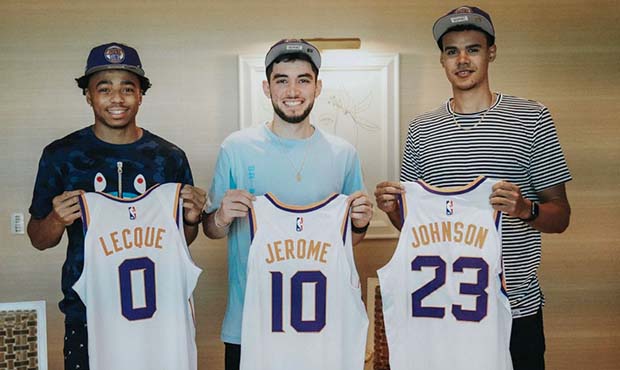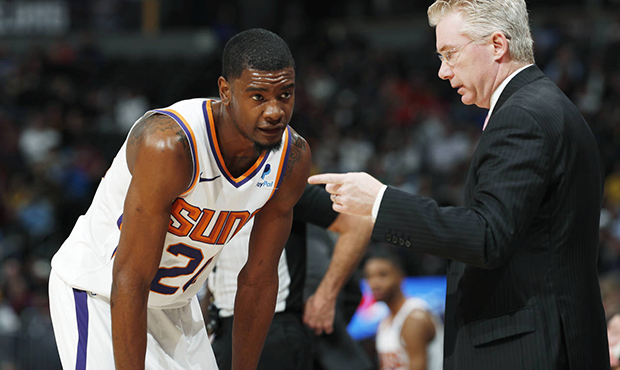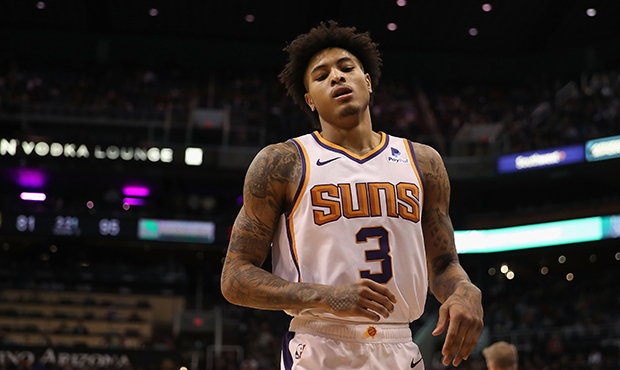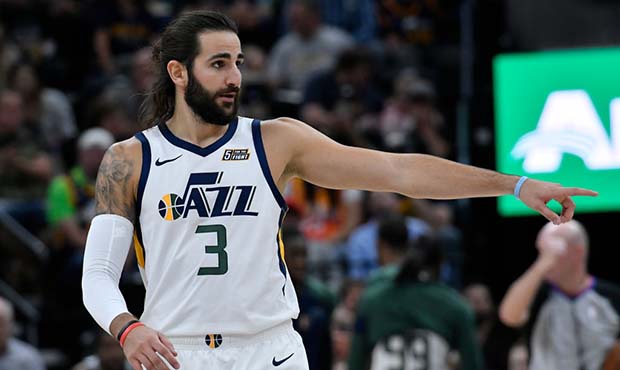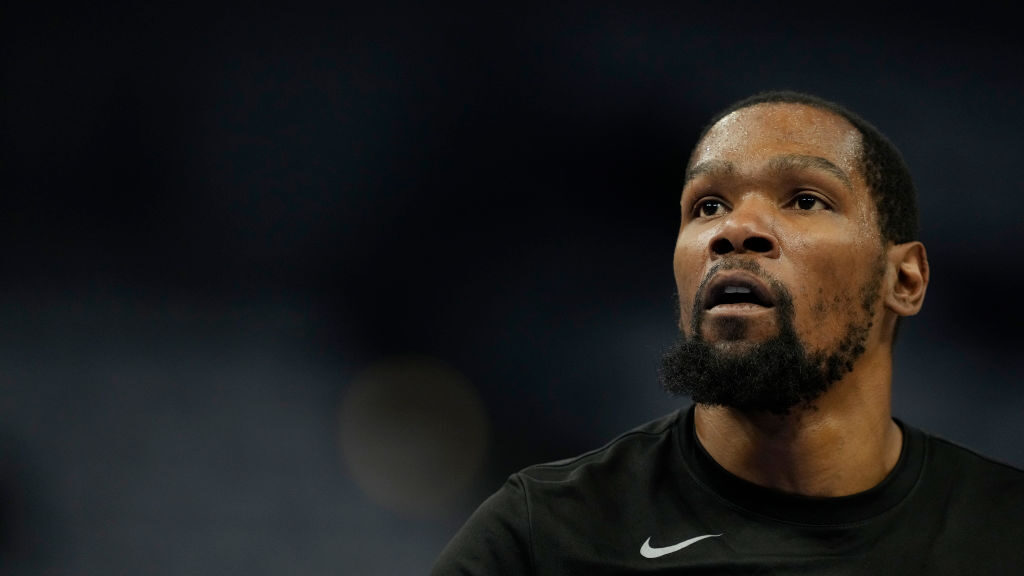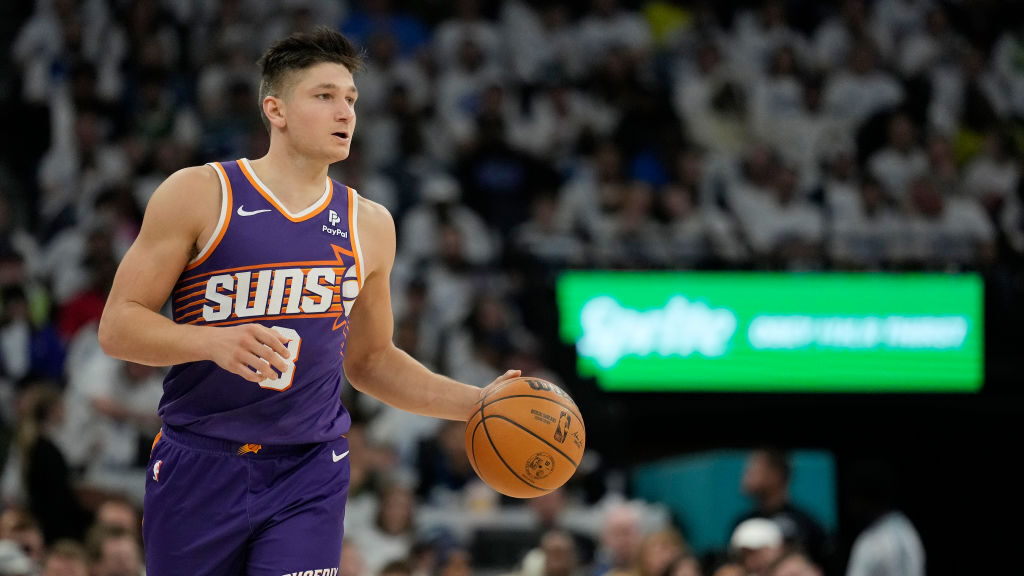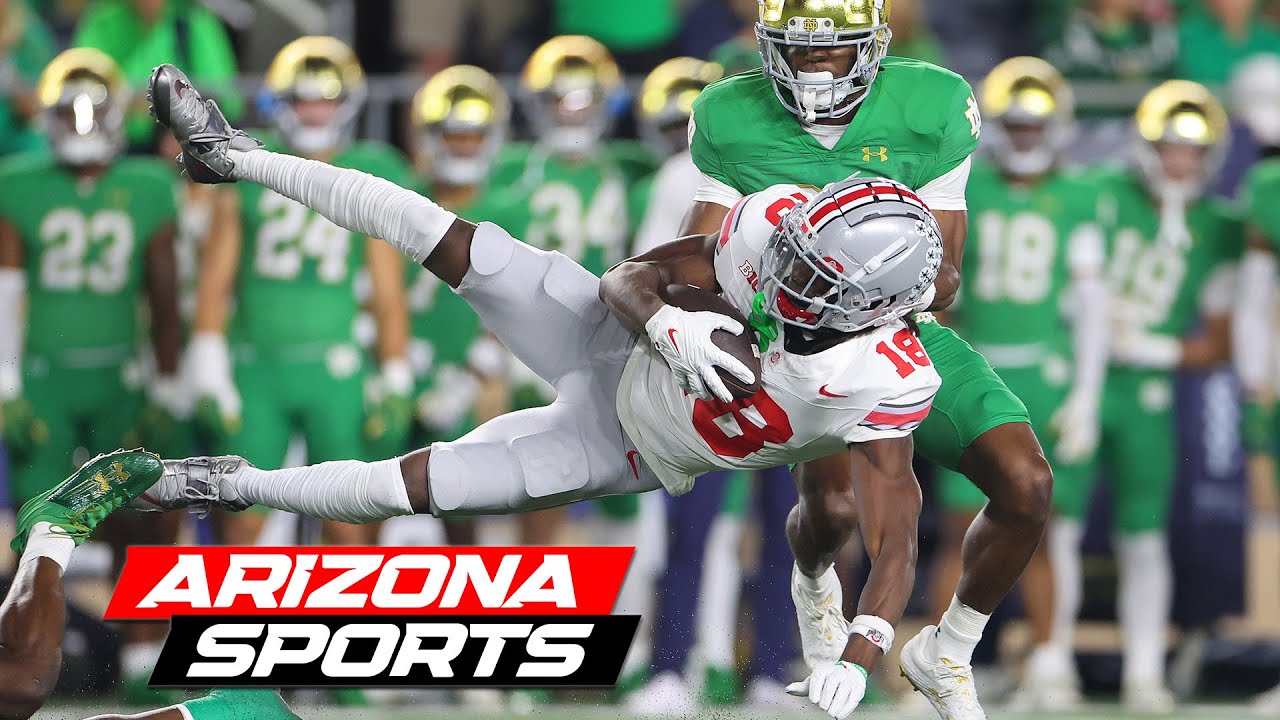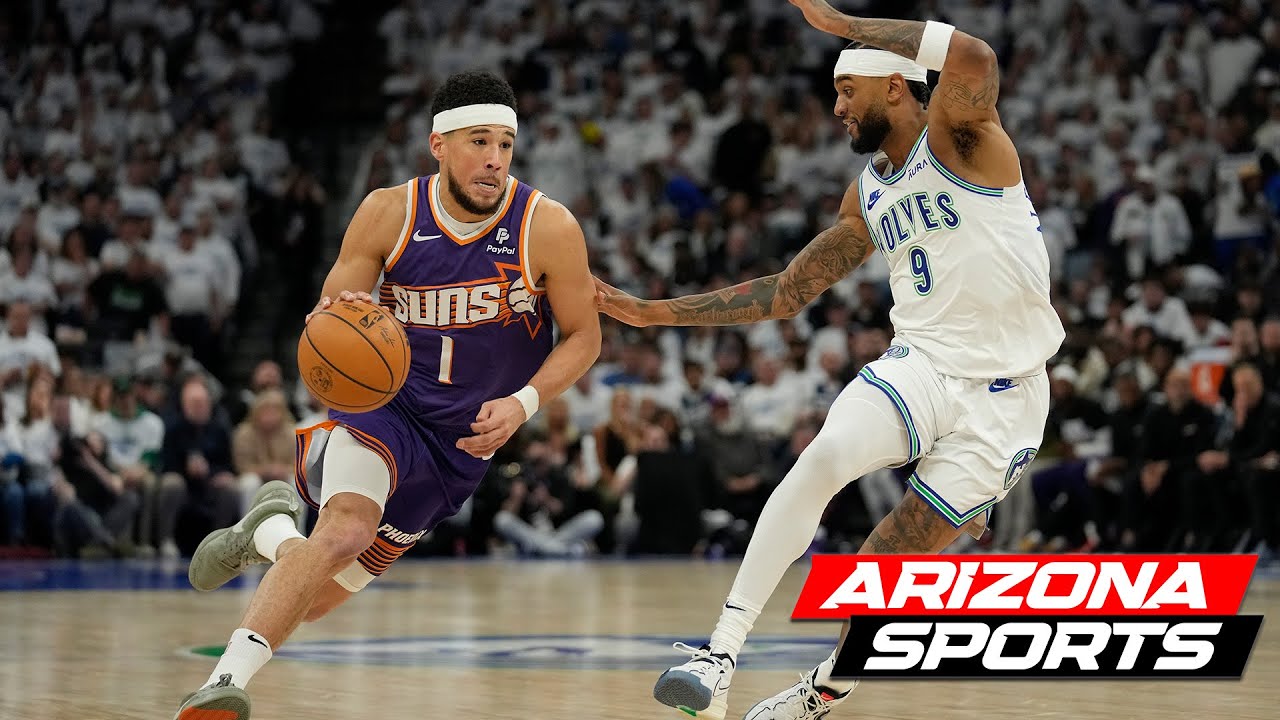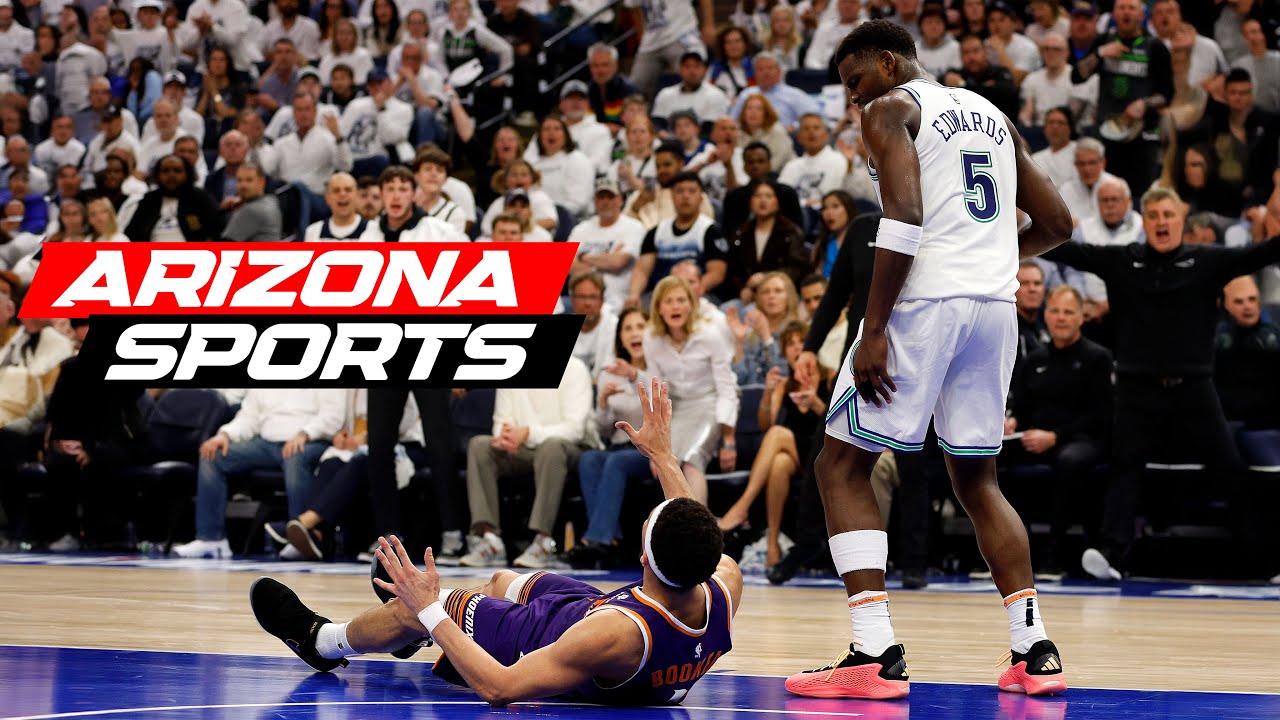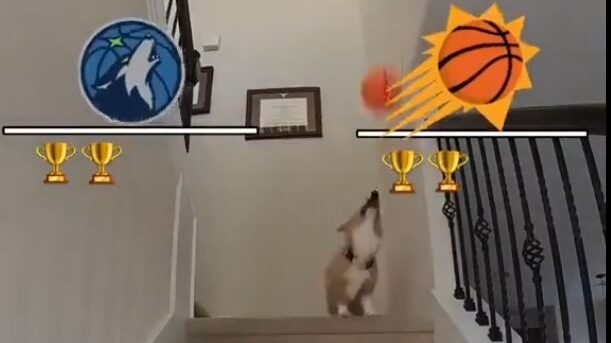ESPN’s Zach Lowe lists Suns as losers after 1st week of free agency
Jul 8, 2019, 2:39 PM | Updated: 2:42 pm
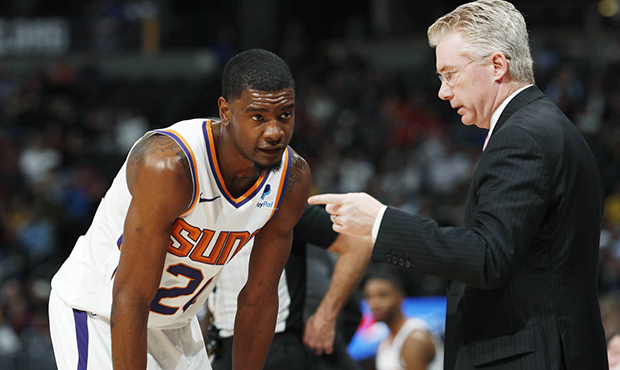
Phoenix Suns forward Josh Jackson, left, listens to assistant coach Joe Prunty during a timeout in the first half of an NBA basketball game against the Denver Nuggets, Friday, Jan. 25, 2019, in Denver. (AP Photo/David Zalubowski)
(AP Photo/David Zalubowski)
The Phoenix Suns clearly viewed many pieces of last year’s roster as sunk costs.
On draft day, general manager James Jones, in his first offseason on the job, dealt forward T.J. Warren and a pick to Indiana, clearing an immediate $10.8 million in cap space. Phoenix pulled a similar move last week, trading fellow wing Josh Jackson to the Memphis Grizzlies, shedding $7.1 million more by doing so. But the Suns also included point guard De’Anthony Melton and two second-round picks in their package.
They received Kyle Korver, who is reportedly going to be waived, plus backup point guard Jevon Carter in the deal.
Regardless of swapping a likely third-string point guard for another, losing two second-round selections to trade a bust-trending lottery pick is not a win, even if the team so desperately needed to ship Jackson and his offcourt issues away.
Phoenix was also desperate in that it needed to open up a few million dollars just to sign free agent point guard Ricky Rubio and maintain a $9.6 million cap hold on restricted free agent forward Kelly Oubre Jr.
And so ESPN’s Zach Lowe laid ether on the Suns front office for trading so much just because the cap math wasn’t aligned.
Jackson had been available for nothing. The Suns decided they didn’t want him for reasons that had little to do with his on-court performance — which was mostly frenzied and unproductive anyway.
But incentivizing another team to take him in part because you screwed up your cap sheet is a disaster. It borders on malpractice.
Lowe suggests that the Suns could have not dealt for center Aron Baynes on draft day.
Phoenix traded a future first-round pick acquired from the Milwaukee Bucks to draft backup point guard Ty Jerome and add Baynes, placing him behind second-year center Deandre Ayton on the depth chart. That trade added millions of dollars to the team’s salary total — Baynes will make $5.4 million next year and Jerome is projected to make $2.2 million off the bat.
The Suns signed big man Frank Kaminsky using their room exception, and he could play backup center, Lowe suggests. Thus, no real pressure to add Baynes.
Is getting the sour end of a trade deal worth Baynes? And was Melton that poor of a fit (for whatever reason) that the Suns needed to acquire Jerome and Carter? Point guards Elie Okobo and Tyler Johnson remain as backup point guard options anyway.
Even the $17 million contract starting point guard Ricky Rubio will earn in 2019-20 is questionable in Lowe’s opinion.
What was Rubio’s market once Indiana pivoted to (trade for Bucks guard Malcolm Brogdon instead of signing Rubio)? Is Rubio a good fit next to Devin Booker? Is Oubre worth all this trouble? He looks like a 3-and-D guy. He’s a long-armed menace defending the ball. He’s still just 23. But he’s a 32% career shooter from deep who daydreams away from the ball on defense. Seriously: Count the backdoor cuts.
Overly-critical? Maybe. The point guard market was hot, but Rubio’s lack of self-creation and shooting question-marks are fair.
One Oubre flaw does not erase all his positive contributions.
But Lowe’s main point stands: The Suns did not clear the amount of money they wanted to spend until they had already agreed to spend it. They agreed to sign Rubio to a deal that they didn’t have room for, and the combined dumping of a 18-point-per-game scorer in Warren and a high lottery pick in Jackson — as very necessary as the latter was — just doesn’t look like clean management.
An easy way for this to not matter: For Phoenix’s many new contributors to look a lot better than the old ones did.
Winning more than 19 games seems easy to imagine, but in a reshaped NBA where two teams within the Suns’ own division added superstar power and the other appeared in its fifth straight NBA Finals last month, not getting a whole lot better is not out of the realm of possibility.


